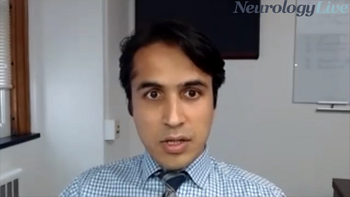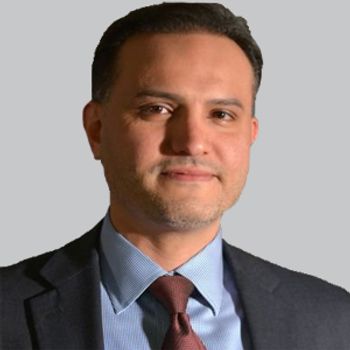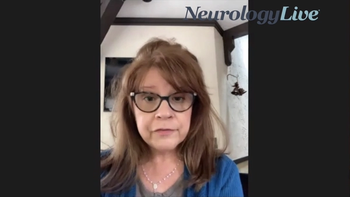
The neurologist from Cleveland Clinic stressed the potential for responsive neurostimulation in older populations with epilepsy and the need for expanded research.

The neurologist from Cleveland Clinic stressed the potential for responsive neurostimulation in older populations with epilepsy and the need for expanded research.

African Americans are not only at increased risk of having a stroke, but they're also at increased risk of being debilitated by or dying from a stroke.

Data presented at the ASGCT 2021 meeting showed increased microdystrophin expression with SGT-001.

Neal Parikh, MD, discussed the inconsistencies with access to treatment regimens aimed at improving smoking cessation in post-stroke patients.

Among early-treated patients, in the door-to-puncture time interval, each 1 hour of delay was associated with 0.92 health life-years lost and each 1 second of delay with 2.2 health life-hours lost.

Northwell Health will conduct a NIH-funded study assessing the effects of the experimental drug in treating patients with ICH.

The director of the sleep disorders center at Cleveland Clinic discussed the data on lower sodium oxybate presented at AAN 2021.

William Noah, MD, director and founder of the Sleep Centers of Middle Tennessee, discussed the aim of his practice’s study.

All patients treated with ocrelizumab (Ocrevus; Genentech) were B-cell depleted and had lower SARS-CoV-2 antibody response than any other patients in the study.

The senior director of patient management, care, and rehabilitation research at the National MS Society discussed her recently published paper that called for progressive MS research.

The safety profile of the SLC13A5 vector was “excellent” according to study authors, with no adverse effects on weight, general activity, or survival in knockout mice and wild type littermates.

In addition to comorbidity frequency, the researchers also studied the comparison of comorbidities between men and women with migraine.

The founder and chief scientific officer of Neurolutions discussed how the company’s newly approved chronic stroke rehabilitation system will provide expanded benefits to post-stroke patients.

The director at AbbVie discussed the timeline for when a regulatory decision may come for migraine treatment atogepant, and whether additional trials are necessary.

Understanding the signs and symptoms stroke during National Stroke Awareness Month.

Clive Ballard, MD, the executive dean at the University of Exeter Medical School, discussed the safety and efficacy profile of pimavanserin (Nuplazid; Acadia Pharmaceuticals).

A poster presentation at the American Psychiatric Association Virtual Meeting suggests that late-life depression might predict self-reported cognitive complaints.

The clinical research director at the UCSF Multiple Sclerosis Center shared some of the takeaways from his research for the clinical community of specialists treating patients with NMOSD.

The partnership combines Capsigen’s vector engineering with Biogen’s drug pipeline, seeking to develop gene therapies for neuromuscular and central nervous system disorders.

The associate professor of Neurology at the Cleveland Clinic Lerner College of Medicine of Case Western Reserve University discussed the potential of a data-driven approach to classifying patients with MS.

Sleep depth was observed to be an independent predictor of heart rate change following seizure for patients with epilepsy.

The chief of neurology at Ascension Saint Agnes discussed the interventions her team implemented to improve patient-specific stroke discharge instructions.

Kathy Zackowski, PhD, OTR, senior director of patient management, care, and rehabilitation research at the National MS Society discussed her team’s call to action for research.

A recent study showed improvements in animals with mutant huntingtin protein treated with AFFiRiS AG’s investigational monoclonal antibody.

Improvements in DMTs and management standards appear to have lowered the risk of progression to EDSS scores of 4.0 and 6.0 for those with pediatric-onset disease.

The staff neurologist at the Mellen Center for Multiple Sclerosis Treatment and Research at Cleveland Clinic discussed how novel dexterity measurements can improve prognostication of disease progression.

Daniel Reich, MD, PhD, senior investigator at the National Institutes of Neurological Disorders and Stroke, spoke about his investigations into the role of microglia in progressive MS.

The associate professor of neurology at Columbia University and medical consultant and care center director at the Muscular Dystrophy Association spoke to the importance of staying up on the latest developments in ALS and keeping patients in the loop on that information.

Here's what is coming soon to NeurologyLive.

The associate professor of neurology at Columbia University and medical consultant and care center director at the Muscular Dystrophy Association discussed the use of larger datasets to improve prognostication and clinical trials in ALS.